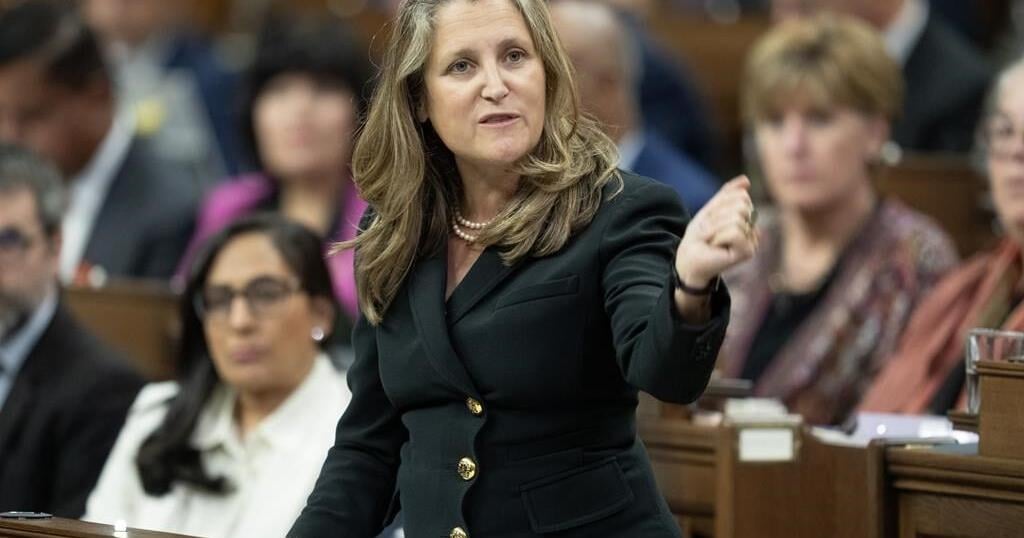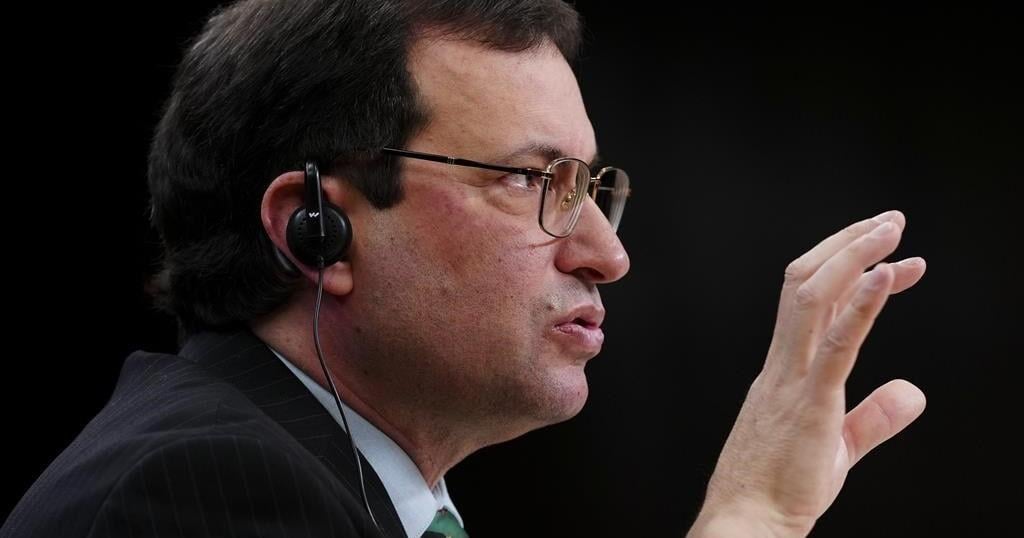OTTAWA – The Liberals say they will not support the Bloc Québécois in a House of Commons vote about increasing old age security payments for all seniors, despite an ultimatum by the opposition party that threatens to topple the minority government.
Liberal House leader Karina Gould said her party won’t vote in favour of a Bloc motion calling on Parliament to support their private member’s bill.
“This is not appropriate for an opposition day motion,” Gould said on Wednesday.
The Liberals were asked to give royal recommendation to a Bloc bill that would increase the old age security pension for seniors between 65 and 75 years old.
The Liberals increased the pension by 10 per cent for seniors over 75 in 2022 and the other opposition parties have backed the Bloc push to expand that.
It’s estimated the move would cost about $16 billion over five years.
Because it’s a financial bill, the change could not take effect without the government’s backing.
Gould said the government sets budgetary policies and wants to ensure it can continue to support seniors.
Labour Minister Steven MacKinnon lambasted the Bloc on Tuesday, saying the party continues to vote against measures that will help seniors, like dental care and pharmacare, and accused them of being “opportunistic.”
Health Minister Mark Holland said Wednesday morning he would be voting against the motion, saying it would set a “terrible precedent” on how to use private member’s bills.
“I don’t think Canadians would want $16 billion private member’s bills just coming in with no contextualization,” he said.
“I would think the Bloc would understand that as well.”
The Bloc has given the Liberals until Oct. 29 to pass the bill along with another one related to protecting the supply management system in international trade deals.
If that doesn’t happen, Leader Yves-François Blanchet has said he will begin negotiating with the other opposition parties about voting down the government.
The Conservatives have already used two of their opposition days to introduce non-confidence motions in the House in the last two weeks. The Liberals survived both votes with the votes of the Bloc and the NDP.
If a non-confidence vote were to pass it would bring down the minority government and would likely trigger an immediate election.
The Bloc will not get another opposition day this sitting, and won’t get a chance to introduce a non-confidence motion of their own. The NDP will get one, and the Conservatives will get another three before the House of Commons rises for Christmas in mid-December.
The number of opposition days allotted in each sitting is decided at the beginning of a session but the government decides when they are scheduled.
Members of Parliament were scheduled to take part in a confidence vote on Wednesday prompted by the government, but that has been delayed.
The ways and means motion that paves the way to legislate a change to capital gains taxes was initially scheduled for this afternoon but is on hold as the House of Commons deals with some unrelated matters of privilege.
The capital gains inclusion rate was adjusted in June and the motion before the House would allow the government to introduce the legislation to formalize the changes.
The NDP and Bloc have both supported those changes so the motion was expected to pass. But debate on matters of privilege have no specific timeline so it is not clear when the ways and means vote can be rescheduled.
This report by The Canadian Press was first published Oct. 2, 2024.

























